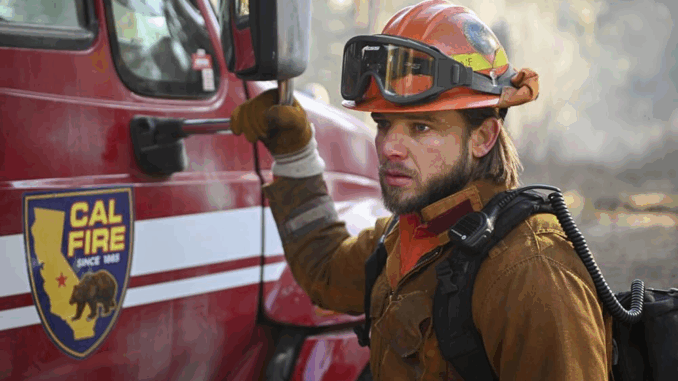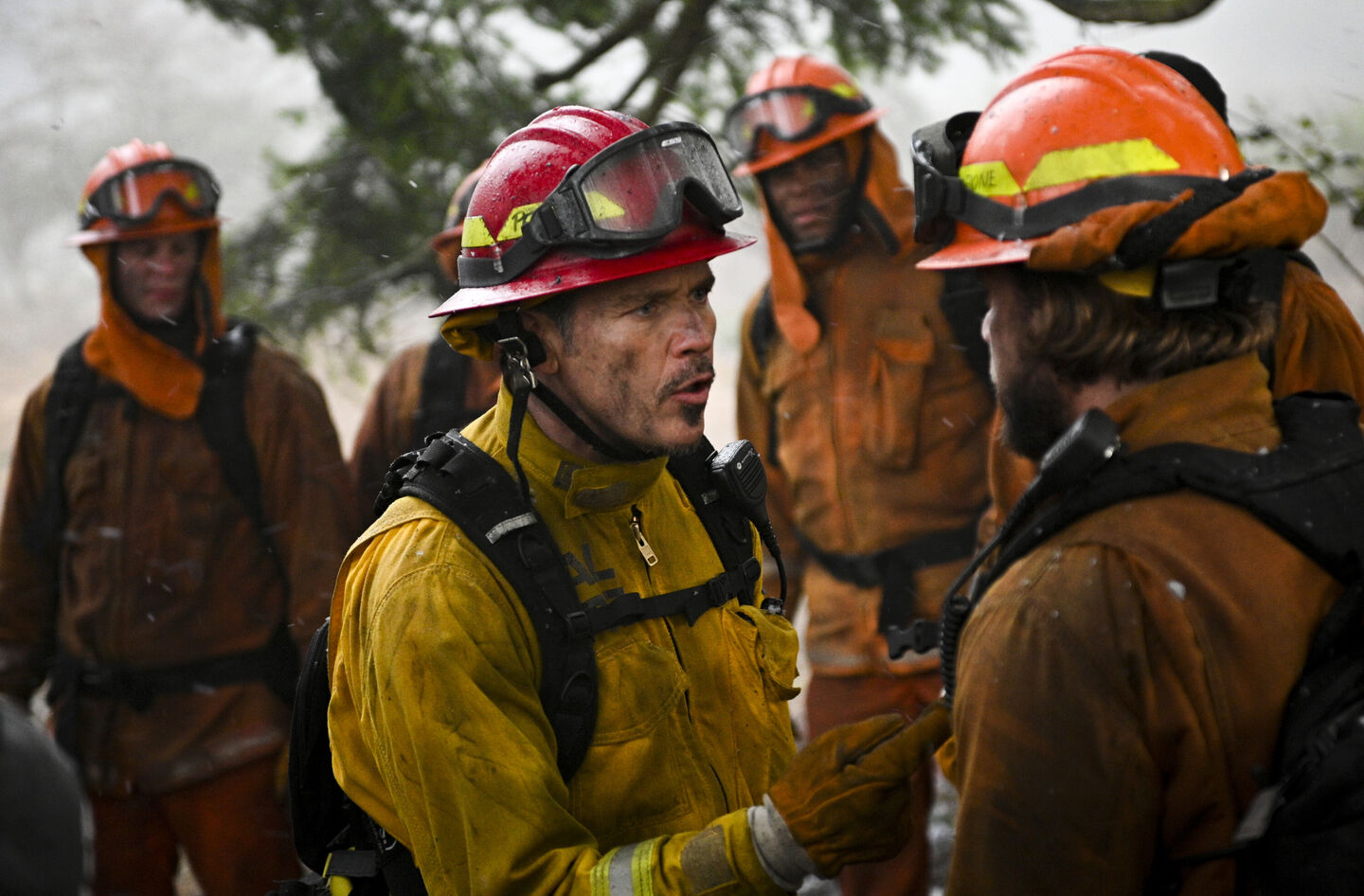
Introduction: The Fire We Don’t See
Every week, Fire Country draws us in with roaring flames, high-stakes rescues, and the raw physical bravery of its firefighting team. But behind the masks, hoses, and adrenaline is a quieter, more insidious fire: the mental toll of constant danger, trauma, and loss.
Mental health is not always front and center in traditional action dramas. But Fire Country does something different—it shows that strength isn’t just about charging into danger, but also about facing internal battles. The show thoughtfully portrays post-traumatic stress, emotional burnout, grief, anxiety, and the long road to healing, breaking through cultural taboos and toxic stoicism.
This isn’t just fiction. It mirrors reality. Firefighters and first responders are among the most vulnerable professions for mental health issues, often facing high rates of depression, substance use, and even suicide. Through its characters, Fire Country opens a critical conversation.
Firefighters Are Not Invincible: Breaking the Stereotype
Culturally, firefighters are seen as heroes—courageous, dependable, strong. But that image can become a prison. The pressure to be “tough” at all times often prevents real-life responders from seeking help.
In Fire Country, that stereotype is slowly dismantled. Characters like Vince Leone, Bode Donovan, Eve Edwards, and Jake Crawford are each portrayed as strong—but also deeply human. They carry scars, harbor guilt, and sometimes crack under the pressure.
By showing vulnerability—nightmares, breakdowns, silent stares after tragedy—the show normalizes what so many real firefighters experience. It doesn’t reduce them to trauma, but it allows the audience to see that strength and struggle can coexist.
Bode’s Inner War: Guilt, Shame, and Redemption

Bode Donovan is a walking storm of guilt and trauma. His emotional arc is about more than earning respect or escaping his criminal record—it’s about rebuilding self-worth in the aftermath of failure.
Bode’s mental state is never overtly diagnosed, but the signs are there: hyper-vigilance, quick temper, deep self-loathing, and a constant need to prove himself. Much of this stems from past mistakes, but it also reflects the pressure he puts on himself to be “good enough” for his parents, his team, and himself.
His internal monologue often bubbles up through tense exchanges and moments of silence. In some of the show’s most powerful scenes, Bode’s struggle isn’t external—it’s the voice in his head telling him he’ll never be more than his worst moment. And yet, by showing up for his team, apologizing, and taking accountability, Bode models one of the hardest forms of bravery: emotional honesty.
The Cumulative Trauma of a Life on the Line
Every member of the fire crew experiences cumulative trauma—the kind that builds slowly, call after call, body after body. The show gives space for this, letting us see characters unravel in small, realistic ways.
-
Jake, the golden boy with a dark past, hides his anxiety behind smiles and swagger. But when pushed, he cracks, revealing the pain of losing comrades and failing to save lives.
-
Eve, the tough and loyal firefighter, copes by compartmentalizing. But the weight of constant death catches up to her, especially when she loses someone close.
-
Sharon, while not on the front lines anymore, carries the pain of watching others suffer—from both fire and illness—and must wrestle with the emotional burden of leadership.
The show never rushes recovery. There are no “healing in one episode” arcs. Instead, it reflects the truth: trauma lingers, and healing is a nonlinear process.
Silent Struggles: Grief and Loss in the Background
Some of the most haunting scenes in Fire Country are not dramatic but quiet:
-
A character sitting alone after a rescue.
-
A fire crew returning to the station in silence.
-
A firefighter staring at a photo of someone they couldn’t save.
These moments matter. They show that grief is not always loud—often, it’s tucked into daily routines. The show captures how first responders carry the ghosts of those they couldn’t help, long after the flames are gone.
It also shows the emotional detachment that creeps in over time. When tragedy becomes routine, numbness can feel like survival. But numbness is its own kind of wound—one that Fire Country refuses to ignore.
Inmate Firefighters: Redemption, but Also Re-traumatization
The inmates in the Cal Fire program are often there to seek redemption, but they also come with preexisting trauma—violence, addiction, abandonment. And while the fireline gives them structure and purpose, it can also re-trigger old wounds.
Bode’s journey is emblematic of this. Each fire is not just a physical challenge, but an emotional test. He relives guilt, contemplates his worth, and fears letting people down again. Fire becomes both metaphor and reality—a test of character and control.
The show doesn’t sugarcoat the mental health risks for inmate firefighters. It shows how trauma doesn’t disappear just because someone gets a second chance. Healing is messy. Forgiveness—especially self-forgiveness—is hard.
Peer Support and the Need for Better Systems
One of the show’s recurring themes is that mental health support must come from within the crew as well as from the top down. Fire Country depicts:
-
Quiet check-ins between team members.
-
Moments where someone says, “You okay?” and waits for a real answer.
-
Conversations where guilt is met with understanding, not judgment.
These peer-to-peer moments feel organic and necessary. But they also highlight the need for formal support systems, which the show occasionally critiques.
In episodes where therapists or grief counselors are mentioned, there’s often hesitation or stigma. Characters say things like, “I don’t need to talk to anyone,” or “It’s just part of the job.” This reflects reality—and the need for cultural change.
Fire Country becomes part of that change by portraying therapy and mental health care as essential, not optional.
Conclusion: Bravery Isn’t Just in the Flames
The true genius of Fire Country lies in its refusal to define strength as stoicism. It shows that bravery can mean:
-
Saying, “I’m not okay.”
-
Admitting fear after a close call.
-
Letting go of guilt.
-
Asking for help.
By doing this, the show does something revolutionary in the genre: it treats mental health not as a subplot, but as an integral part of what it means to be a hero. Fire doesn’t just burn trees—it scorches the soul. And the battle to stay emotionally alive is just as urgent as the fight to save physical lives.
In telling these stories with compassion, Fire Country becomes more than a fire drama. It becomes a mirror for our time—a call to honor vulnerability as much as valor.
